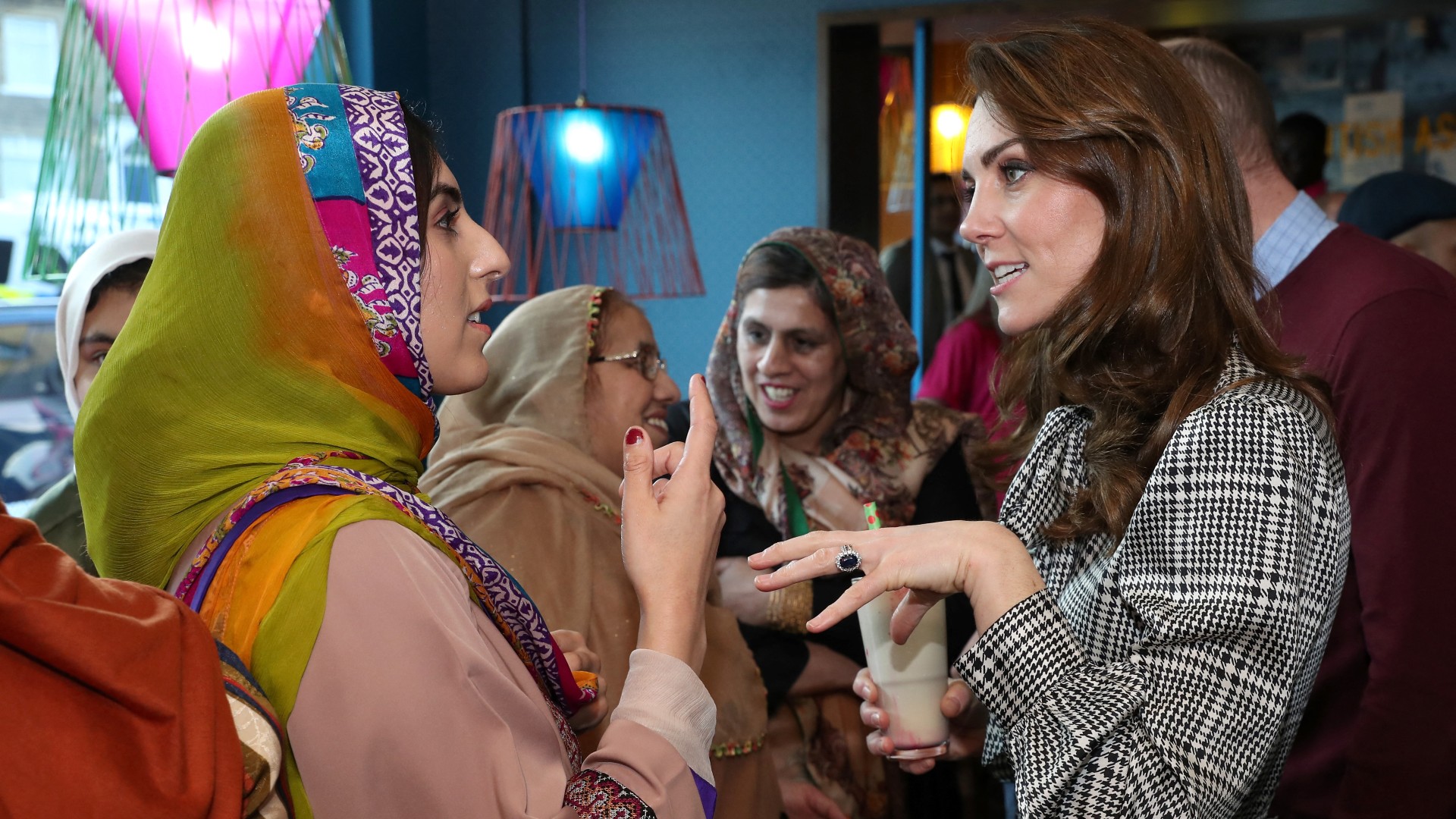UK national census: As Fulani row shows, greater diversity doesn't mean acceptance

The release of the latest UK national census data last week is significant, particularly in relation to the changing patterns of ethnicity and religion in England and Wales.
The census indicated that Muslim populations have increased from 4.9 percent in 2011 to 6.5 percent in 2021. Notably, the percentage of Christians decreased from 59.3 percent in 2011 to 46.2 percent in 2021, with the highest increase amongst those identifying with "no religion", up from 25 percent in 2011 to 37 percent in 2021.
Every piece of data that constitutes the census is a person’s story which reveals how much we have travelled, and how far we have to go
Such an increase in the "no religion" category will undoubtedly raise questions about the role of religion, specifically Christianity, in society.
The fallout on the census data focused on the decline of Christianity and "whiteness" and the marginal increase of Muslims in England and Wales.
Right-wing commentators claimed that cities in the UK such as London, Birmingham and Manchester were now "minority-white cities", echoing previous sentiments that London was reminiscent of a "foreign country" and that native whiteness was being replaced.
Stay informed with MEE's newsletters
Sign up to get the latest alerts, insights and analysis, starting with Turkey Unpacked
Despite the claims being wildly inaccurate and inflammatory, they reaffirm such notions that "white" and "Christian" are the default adjectives used to describe the UK. According to these ideas, any deviation from these alleged norms must be attributed to the rise of immigration and the overall decline of Britain.
A historic background
These statements stem from the census data indicating that Muslims predominantly live in cities such as London, Birmingham, Manchester, Cardiff, Luton and Bradford.
What is obscured by these claims is the historical fact that port cities were integral to the British empire’s labour demands, which saw many Muslims from the colonies in the Global South move to the heart of the British empire, whilst enduring racial hostility within the housing and employment markets.
An example would be the hostility faced by non-white lascars (sailors) in Britain after the First World War, which resulted in some jumping ship to escape a life of misery.
Some commentators have suggested that the trend of rising ethnicities in parts of England will fuel Great Replacement conspiracy theories, especially considering how they are wielded to polarise discourse on immigration and nationalism in the post-Brexit state.
To divert attention from such divisive reactions, both Birmingham and Leicester have been named "super-diverse" in light of the census data, which illuminates how both cities are now considered to have majority Black, Asian, and minority ethnic - or Bame - populations.
Such positive framings juxtapose with how both Birmingham and Leicester were recently viewed as spaces of racial tension.
The recent past in Birmingham has seen rows erupt over Project Champion, where over 200 CCTV cameras were installed in Muslim areas over terrorism concerns, and the Trojan Horse affair when Birmingham schools were investigated over the perceived imposition of Islam in school curriculums.
How does the 2021 census, which indicates that Muslims make up 29.9 percent of Birmingham's population, shift our understanding of how Islam and Muslims were positioned as security concerns?
Surely if anything, it is time to change our thinking on how Islam and Muslims shape civic life in these regions, moving beyond their typical association with security and a perceived "lack" of Britishness.
A routine question
With the shifting nature of ethnicity and religion as indicated by the census, conversations around race and racism have once again dominated discussion in British society.
In the last week, the treatment of Ngozi Fulani, the CEO of domestic abuse charity Sistah Space, has sparked a heated debate. During a reception on domestic violence held at Buckingham Palace, Fulani claimed she was persistently asked by Lady Sarah Hussey, a Queen’s Consort, to answer where she came from. Lady Hussey stepped down from royal duties over the remarks.
It is time to shift our thinking on how Islam and Muslims shape civic life in these regions, moving beyond their typical association with security and a perceived 'lack' of Britishness
The transcript as narrated by Fulani is all too familiar; this is a routine question that people of colour are faced with, and yet it was Fulani’s insistence that she was from Britain and the fact that the incident took place in a hallmark British institution previously embroiled in racist sagas, which fuelled anger about the function of race and "cancel culture" in society. Tabloid media have tried to turn the tables against Fulani, and blame her instead of Lady Hussey for the incident.
Similarly, while some have celebrated the census data as affirming diversity and heterogeneity, others lament the alleged loss of "Britishness". In the same way, the furore around Fulani's account speaks to the continuous erasure and scrutiny faced by Black people in the UK.
In many ways then, "progress" in numbers does not reflect changing attitudes to race in England and Wales just yet.
If anything, there should be caution when thinking about what the census data tells us and what it also obscures. Every piece of data that constitutes the census is a person’s story which reveals how far we have travelled, and how far we still have to go.
The views expressed in this article belong to the author and do not necessarily reflect the editorial policy of Middle East Eye.
Middle East Eye delivers independent and unrivalled coverage and analysis of the Middle East, North Africa and beyond. To learn more about republishing this content and the associated fees, please fill out this form. More about MEE can be found here.






